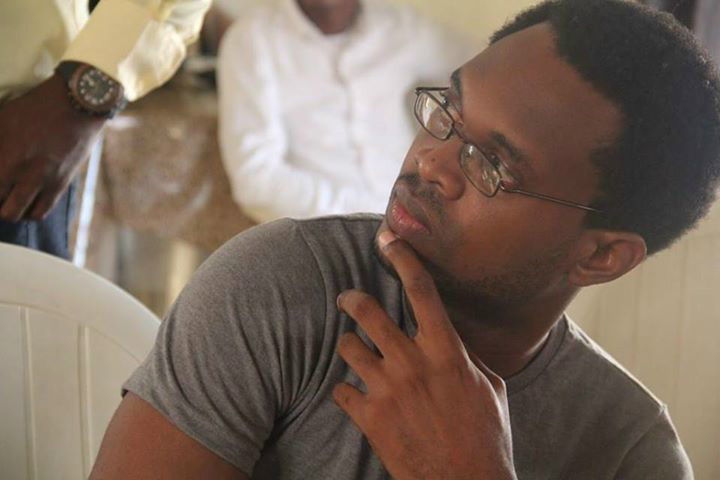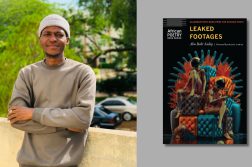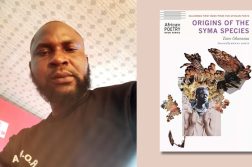Today’s tea chat is with Mr Bunmi Familoni, a fantastic hip-hop connoisseur and writer. I’ve read some of his writings and was totally left in awe. His vivid narratives and choice of issues to touch got me always looking forward to reading from him. Some people can write and Bunmi Familoni sure can. So we decided to have a chat with him and here is how it went.
Feyisayo Adeyemi: Let me ask, what significance does the number 7 hold for you?
Bunmi Familoni: None.
FA: I read three of your short stories and they had 7 words as the title heading, coincidence or happenstance?
BF: The seven-word titles of my stories, which I haven’t noticed, are completely coincidental; there has been no deliberate attempt by the writer to be (more) cryptic (than he already is), despite the allure of mystery.
FA: This vividness in your writings – Everything White was the first I read, the images popped easily. Do you set out to achieve that?
BF: In art (visual, performance or literary), vividness is everything – if you cannot conjure up images then you have no business being in the business of the arts. Every artist, especially writers (because of the visual limitations mere words have), must strive to achieve that vividness. I think it has to do with the extent to which a person’s imagination can be stretched, and the extent to which you can stretch your audience’s imagination; without the ability to do this what is one writing for – for you will only have loose strings of bland words on paper; no colours, no pictures, no vision. For me, imagery is the light and soul of literature. So, in answer to your question, yes I set out to achieve that vividness; I set out to paint a picture, and give the audience eyes in their minds.
FA: Reading or writing, which do you enjoy most?
BF: Reading, because it is easier, less demanding; even though as a writer I have managed to make reading just as taxing, by reading with a pen and ‘the eye’. But naturally, reading is more enjoyable – you are exposed to all colours of minds, from all walks of life; but with writing, you’re restricted to just yourself – and oneself can be very boring sometimes.
FA: I’ve read a few of your works; and like I asked a writer recently, there seems to be an observable infatuation with the theme of death with most writers and in yours a recurring balance of happiness and sadness is noticeable. Why is that?
BF: About this observable infatuation with the theme of death, I’ll start by quoting Femi Osofisan, in an interview where he said there has been an “increasing pain evident in the literature of the post-military writing. Our contemporary literature has become a ringing echo chamber of pain and woe . . . you cannot but be struck by the numerousness of abuse and cruelty, plus the near absence of joyful endings.” A non-joyful ending, even if it’s not death as we know it, is a form of death. Kunle Fagbemi wrote that, “Literature merely raises a mirror for humanity to see its lurid features, its imperfections, its fantasies, its obsessions.” And, I’ll add, its little pieces of daily deaths. If literature provides the image of the society, isn’t there enough death in the society for the creators of the society’s literature to be obsessed by it. I wonder when people say writers are obsessed with death; isn’t death a part of our lives, our daily living; don’t we see it every day, everywhere, sleep with it on our consciousness, live it in our goings and comings; isn’t it the end of every life. The only problem I have is when a writer tries to use death as a convenient denouement, or even a deus ex machina; because then we are misled to believe that death is a destination, meanwhile it is part of the journey, for we die every day, in bits; so why wouldn’t there be a recurrent theme of death in our literature. The beauty, however, lies in being able to find the balance between this darkness and the light, between happiness and sadness, between grief and humour, for there is only that thin line separating the two sides, one just needs to find it.
FA: Noticed you are on the hip-hop, fashion, and pop culture tip, what holds your fancy?
BF: Ah, hip-hop is life. It is more than the music or the culture; it is a form that has taken on a life of its own. And for people like us who were raised on a daily diet of it, immersed in its sounds and sights, it has become a staple of our existence. But then, I think there’s also the zeitgeist angle to it – that was the dominant sound of the period we grew up in (at least in my urban environment), so hip-hop and all its elements became part of our informal cognitive development. As for fashion and pop culture, they’re just things we picked up along the path.
FA: What role do they play in your writing?
BF: About the role they play in my writing, I don’t think I include a lot of these things in my writing, and I think it has to do with the grim texture of the stories; there’s usually so much darkness taking up space there’s hardly any room left for anything else; which is yet another product of society – if literature is a reflection of reality, in this society how many people appreciate or ‘have time’ for the ‘inanities’ of fashion or pop culture when they’re barely hanging on the breadline.
FA: How often do you flirt with your muse or is she a he? *lol*
BF: My muse is a ‘she’ – a spirit, and I like her on the rocks . . . But most of the time I don’t need a muse. See, in art, most of the time, a muse, like the nine in Greek mythology, is just a myth, an artistic myth.

FA: So when you write, what’s the process?
BF: My writing process is easy – I see/watch, sit and write. No rituals.
FA: On a cool, relaxing with a stiff drink day, what book or webpage are you likely to be caught reading?
BF: On such a day (when I don’t have to read a new book) I pull out an old Steinbeck or Updike and just sit at the feet of the masters.
FA: How do you like a story served?
BF: I like a story served hot, with a lot of colourful spices (turns of phrase that pick you off your seat and hurl you out the window), and enough memorable side dishes. Delicious but not cloying.
FA: Before we let you go, give us your writers’ essentials?
BF: An eye for detail, an expansive, elastic imagination, and good books.
Bunmi Familoni tweets here and check his blog here


